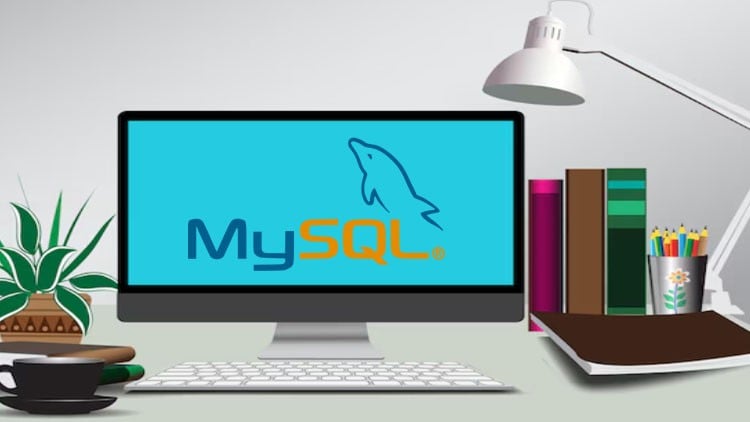
Become a MySQL expert by learning how to build, query, and optimize relational databases.
⏱️ Length: 4.3 total hours
⭐ 4.25/5 rating
👥 3,309 students
🔄 August 2025 update
Add-On Information:
Note➛ Make sure your 𝐔𝐝𝐞𝐦𝐲 cart has only this course you're going to enroll it now, Remove all other courses from the 𝐔𝐝𝐞𝐦𝐲 cart before Enrolling!
- Course Overview
- Embark on a comprehensive journey into the world of relational databases with “Mastering MySQL: Build and Manage Databases Like a Pro.” This dynamic 4.3-hour course, boasting a stellar 4.25/5 rating from over 3,300 students and recently updated in August 2025, is meticulously crafted to transform you from a novice into a confident MySQL practitioner.
- Through a blend of theoretical foundations and practical application, you will gain a profound understanding of how to design, implement, and maintain robust database systems that power modern applications and businesses. The course emphasizes a hands-on approach, ensuring you are equipped with the skills to not only create databases but also to optimize their performance and ensure data integrity.
- You will delve into the intricacies of MySQL, exploring its architecture, common use cases, and the advantages it offers as a leading open-source relational database management system. The curriculum is designed to progressively build your expertise, starting with foundational concepts and culminating in advanced techniques for efficient data management and retrieval.
- The course leverages both graphical tools and the command line, providing you with the flexibility and versatility to interact with MySQL environments effectively. This dual approach ensures you are prepared for any scenario, whether you prefer a visual interface or the power of scripting.
- Target Audience & Prerequisites
- This course is ideal for aspiring developers, data analysts, system administrators, and anyone looking to build a strong foundation in database management.
- No prior database experience is strictly required, though a basic understanding of programming concepts or familiarity with data structures can be beneficial but not mandatory.
- A willingness to learn and a computer with internet access are the primary prerequisites. The installation guides cover major operating systems, making it accessible to a wide range of users.
- Skills Covered / Tools Used
- Database Design Principles: Learn to conceptualize and structure relational databases, including entity-relationship modeling and normalization techniques for efficient data organization and redundancy reduction.
- Advanced SQL Querying: Master complex queries beyond basic CRUD operations, including sophisticated joins, subqueries, common table expressions (CTEs), and window functions for intricate data analysis.
- Database Performance Optimization: Understand the critical factors influencing database speed and efficiency, learning to identify bottlenecks and implement strategies like indexing, query tuning, and schema optimization.
- Data Integrity and Constraints: Implement mechanisms to ensure the accuracy, consistency, and validity of your data through the strategic use of primary keys, foreign keys, unique constraints, and check constraints.
- Stored Procedures and Triggers: Explore the power of procedural programming within the database, enabling you to automate complex tasks, enforce business rules, and enhance application performance by embedding logic directly into MySQL.
- User and Access Management: Learn to secure your databases by creating and managing user accounts, assigning appropriate privileges, and implementing role-based access control to protect sensitive information.
- Backup and Recovery Strategies: Understand essential techniques for safeguarding your data against loss or corruption, including full backups, incremental backups, and disaster recovery planning.
- Introduction to Database Administration: Gain insights into the fundamental aspects of managing a MySQL server, including monitoring, logging, and basic troubleshooting.
- MySQL Workbench: Become proficient in using this powerful graphical tool for database design, development, administration, and performance tuning.
- MySQL Command Line Client: Develop the ability to interact directly with the MySQL server, execute SQL commands, and perform administrative tasks efficiently through the terminal.
- Benefits / Outcomes
- Upon successful completion, you will be able to design and implement efficient relational databases tailored to specific application needs.
- You will possess the ability to write complex and optimized SQL queries to extract meaningful insights from your data.
- Gain the confidence to troubleshoot and resolve common database performance issues, ensuring your applications run smoothly.
- Become adept at securing your databases and managing user access, safeguarding critical information.
- You will have a solid foundation to pursue roles in software development, data analysis, database administration, and related fields.
- The skills acquired will empower you to build more robust, scalable, and data-driven applications.
- PROS
- Highly practical, project-oriented approach ensures immediate application of learned concepts.
- Comprehensive coverage from fundamental principles to advanced optimization techniques.
- Regular updates (August 2025) ensure the content remains current with industry best practices.
- Excellent student rating and high enrollment numbers indicate a well-received and valuable curriculum.
- CONS
- The course is densely packed into a short duration (4.3 hours), requiring focused attention and potentially self-study for deeper dives into specific advanced topics.
Learning Tracks: English,Development,Database Design & Development
Found It Free? Share It Fast!